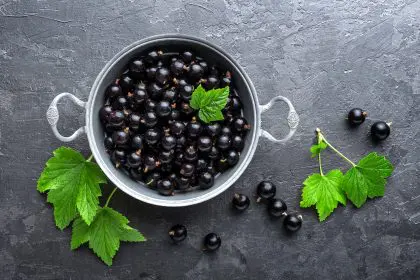Legal battles and scientific insights reshape our understanding of food addiction

Legal precedent meets scientific reality
A groundbreaking Philadelphia lawsuit has amplified the conversation surrounding ultra-processed foods and their influence on public health. Filed by a teenager grappling with severe health conditions, the case challenges the practices of major food corporations. It raises critical questions about the intersection of corporate responsibility and consumer health, shining a light on the role of ultra-processed foods in the modern diet. This legal battle marks a pivotal moment in how society views food addiction and its impact on public health.
Defining the processed spectrum
Navigating food categories
The NOVA classification system is gaining traction for its role in helping people understand the spectrum of food processing. This system ranges from minimally processed foods, like fresh fruits and vegetables, to ultra-processed items, which are packed with additives, preservatives, and artificial flavors. Growing awareness of this classification helps consumers recognize the nutritional disparities between whole foods and their highly processed counterparts. Armed with this knowledge, more individuals are empowered to make conscious decisions about what they eat.
Understanding addiction mechanisms
Decoding the science of food cravings
Emerging research reveals how ultra-processed foods influence brain chemistry, often triggering reward pathways that can lead to overconsumption. Unlike natural cravings for minimally processed foods, ultra-processed items are specifically designed to create a cycle of craving and satisfaction. While experts stop short of labeling this a true addiction, parallels to addictive behaviors are undeniable. This understanding offers a scientific foundation for legal and public health initiatives aimed at curbing the prevalence of ultra-processed foods.
Neurological insights emerge
The brain’s response to engineered foods
Studies in health neuroscience are uncovering how ultra-processed foods uniquely affect the brain. These foods are designed to stimulate pleasure centers, creating a sense of immediate gratification. Unlike traditional addictive substances, they do not result in physical dependence but can lead to psychological habits that are difficult to break. By identifying these patterns, researchers are developing more effective interventions to reduce dependency on ultra-processed foods.
Engineering palatability
How manufacturers create irresistible foods
Behind every ultra-processed snack is a meticulously engineered recipe. Manufacturers use a calculated blend of sugar, fat, and additives to enhance flavor and prolong shelf life. This intentional engineering ensures products are as palatable and appealing as possible, often at the expense of nutritional value. Awareness of these practices exposes the tactics used by food corporations and helps consumers better understand the allure—and the risks—of ultra-processed foods.
Breaking dependent patterns
Practical steps to healthier choices
For many, breaking away from ultra-processed foods feels daunting. However, growing awareness has led to the development of practical strategies for reducing their role in the diet. Experts recommend identifying personal triggers for overconsumption, gradually replacing ultra-processed items with whole foods, and focusing on balance rather than perfection. These evidence-based approaches address both the psychological and physical aspects of dependency, offering a roadmap to healthier eating habits.
Shifting cultural perceptions
From convenience to caution
As awareness of ultra-processed foods grows, cultural attitudes are shifting. Once heralded for their convenience and affordability, these foods are now viewed with greater scrutiny. Public health campaigns, research-backed evidence, and personal testimonies are converging to challenge the long-standing dominance of ultra-processed items in the global diet. This cultural shift signifies a growing demand for transparency and accountability in the food industry.
Legal and public health implications
The path forward
The Philadelphia lawsuit and similar cases worldwide reflect a burgeoning legal movement that aligns with evolving scientific understanding. These cases are not just about individual accountability—they are reshaping how society views food production and marketing. Public health officials, educators, and policymakers are taking cues from scientific research to craft initiatives aimed at reducing the consumption of ultra-processed foods.
Looking ahead
As scientific research, legal challenges, and public awareness converge, the future of ultra-processed foods hangs in the balance. Society is beginning to reckon with the true cost of convenience, from health impacts to ethical considerations. By continuing to demand transparency and prioritize education, consumers can play a pivotal role in shaping a healthier, more informed future.
The fight against ultra-processed foods is far from over, but each step forward represents progress in redefining what it means to eat well in a modern world.















